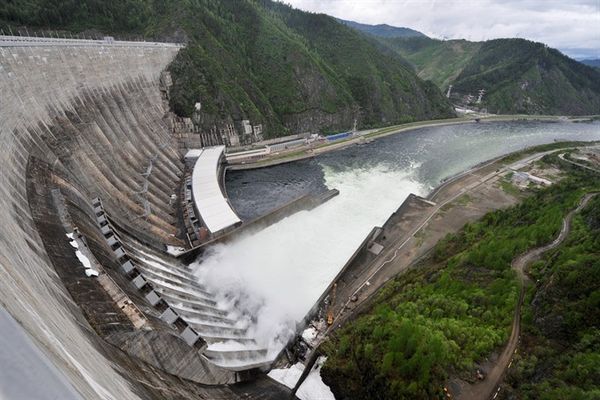As the UN Biodiversity Conference (COP 16.2) convened last week…

Forum slams Mekong dam construction, warns livelihoods at stake

CAN THO – The construction of hydro-electric dams in several countries on the mainstream of the Mekong River has seriously impacted the lives of people living along it, a forum heard on Tuesday in Can Tho City.
Dams in China, Laos and Cambodia have witnessed a significant decline in fish stocks and even the disappearance of many species and depletion of alluvial soil and the vital nutrients it brings, experts said.
“Since the hydroelectric dams have been built in the upper basin, many species of fauna and flora have never been seen again. Northern Thailand used to have 200 kinds of fishes but now only a third survive,” Somkiat Khunsangsa, a local from Chiang Rai Province in Thailand, told the forum titled ‘Mekong basin facing challenges in protecting local residents and ecosystem’.
“The number of fishing boats has fallen from 1,000 to only 300 because there are fewer fish.”
Tonle Sap is the biggest lake in Cambodia and is closely linked with the Mekong River. In the past it was famous for having plenty of fish, which was the main source of income for locals.
Long Sochet, a Cambodian fisherman living along the lake, said: “The situation has changed dramatically since dams were built. We realise that many fishes have disappeared and others have sharply declined.”
Water levels in Tonle Sap are much lower than before, and it is hard to irrigate or fish in the dry season now, he said.
“There is limited alluvial soil and vital nutrients are lacking, and local farmers must use fertilizers, which causes pollution.
“There are around two million people depending on the lake, including my village with 40 households. We are really worried about the future of Tonle Sap due to the construction of the hydropower dams upstream.”
Sem Vorn, a village head in Kratie Province, Cambodia, said in the past her village used to depend on farming and fishing, but now there is only half the fish and people have to leave the village to find jobs.
Nguyen Thanh Hai of Vinh Kim Commune, Chau Thanh District, Tien Giang Province, said: “In the past Tien Giang Province had freshwater for the whole year, but now there is saline water very often. Landslides occur on a large scale.
“Vinh Kim Commune used to be famous for its star apple. Now 80 per cent of the trees have died because of saltwater and no other trees can grow.”
Maureen Harris, Southeast Asia programme director at International Rivers, said seven dams have been built in China and 11 further downstream in Cambodia and Laos.
“In future droughts, saltwater intrusion and landslides are expected to increase greatly in the Mekong Delta.”
Research by the Mekong Basin Management and Sustainable Development shows that by 2040 alluvial soil washed into the delta will fall to a mere 4 per cent of current levels and productivity would decline to 0.6 – 1 tonne per hectare.
Dr. Naruepon Sukumasvin of the Mekong River Commission’s Secretariat said: “Hydropower dams will increase landslides along the river’s banks, especially in Viet Nam’s Mekong Delta and from Vientiane in Laos to Stung Treng Province in Cambodia.
“The dams will worsen poverty since around US$1.57 billion worth of fishes will be gone.”
Dr Duong Van Ni of Can Tho University’s environment faculty said the continuing construction of such dams poses a threat to water security in the region, especially the rice basket that is the delta.
“We must adopt urgent solutions to protect the Mekong River, water resources and the eco-system to avoid a huge migration from the delta to other places because there will be no more livelihoods for 18 million people.”
The forum was organised by the International Rivers and PanNature, a Vietnamese non- profit dedicated to protecting and conserving diversity and improving human well-being.
Source: VNS



